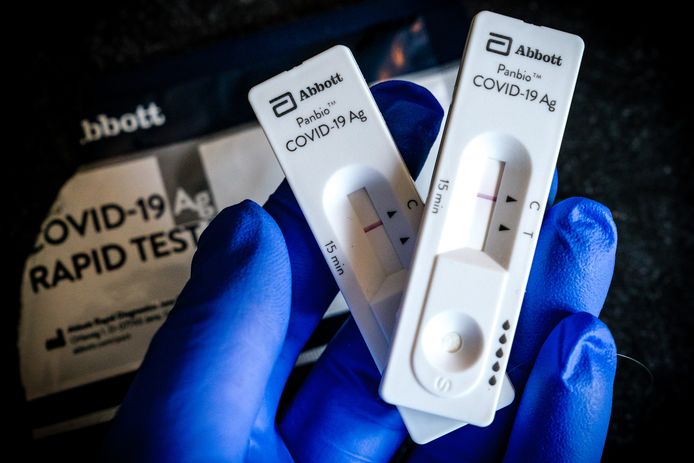The antigen rapid test is a reliable method to identify (early) corona infections in people without complaints and can therefore be used as screening in asymptomatic people. This was concluded in a validation study recently conducted by UMC Utrecht in Dutch professional football.
Being able to quickly identify a corona infection and contact tracing are essential to managing the current pandemic. In most countries, testing policies are aimed at individuals who have symptoms of possible infection with the virus. However, people can be contagious even before symptoms appear and in some people an infection remains asymptomatic. Screening people without symptoms can therefore help identify and then isolate infected individuals.
An earlier validation study of an antigen rapid test (Panbio ™ COVID-19 Ag Rapid Test from Abbott) that was carried out by UMC Utrecht in symptomatic people who had themselves tested via a test facility, showed that this antigen test reliably detects infections with high viral load, in the most contagious period. In order to investigate whether this test is also reliable in asymptomatic people, investigators from UMC Utrecht, in collaboration with the Royal Dutch Football Association (KNVB), started a study among referees, players and staff members of 13 professional football clubs, who were already undergoing frequent testing with the regular corona test (the PCR test).
Between October 1 and November 9, 824 people were tested several times with both a PCR and an antigen test. During that period, 52 subjects (6.3 percent) were diagnosed with SARS-CoV-2 infection based on a positive PCR. The results of the antigen test were compared with the results of the PCR test in 2.406 samples taken, whereby all subjects were asymptomatic at the time of testing. Of these samples, 68 (2.8 percent) were positive in the PCR test and 42 (1.7 percent) were positive in the antigen test. In the early phase of the infection, the sensitivity of the antigen test was found to be high (81-90%), also prior to the onset of complaints. The sensitivity decreases after the infection had been present for longer (after more than 7 days) and low viral load. The specificity of the antigen test was, as previously shown in symptomatic people, very high (>99 percent): no positive antigen test results were found in samples with a negative PCR result.
Principal investigator dr. Marije Hofstra (Department of Medical Microbiology, UMC Utrecht) concludes: “It is very encouraging that this rapid antigen test is also reliable for detecting an early infection, even in the absence of complaints. We have also seen in this study that such a rapid test can help contain an outbreak, by testing asymptomatic individuals frequently and thus detecting new infections early and quickly. This offers good opportunities for expanding the application of rapid antigen testing.”
Winkel BMF, Schram E, Gremmels H, Bruins M, Schuurman R, Wensing AMJ, Bonten MJM, Goedhart E, Hofstra LM, on behalf of the Antigen Rapid Test Validation Group. Screening for SARS-CoV-2 infection in asymptomatic individuals using the Panbio ™ COVID-19 Antigen Rapid Test (Abbott) compared to RT-qPCR. Preprint submitted to Medrxiv

